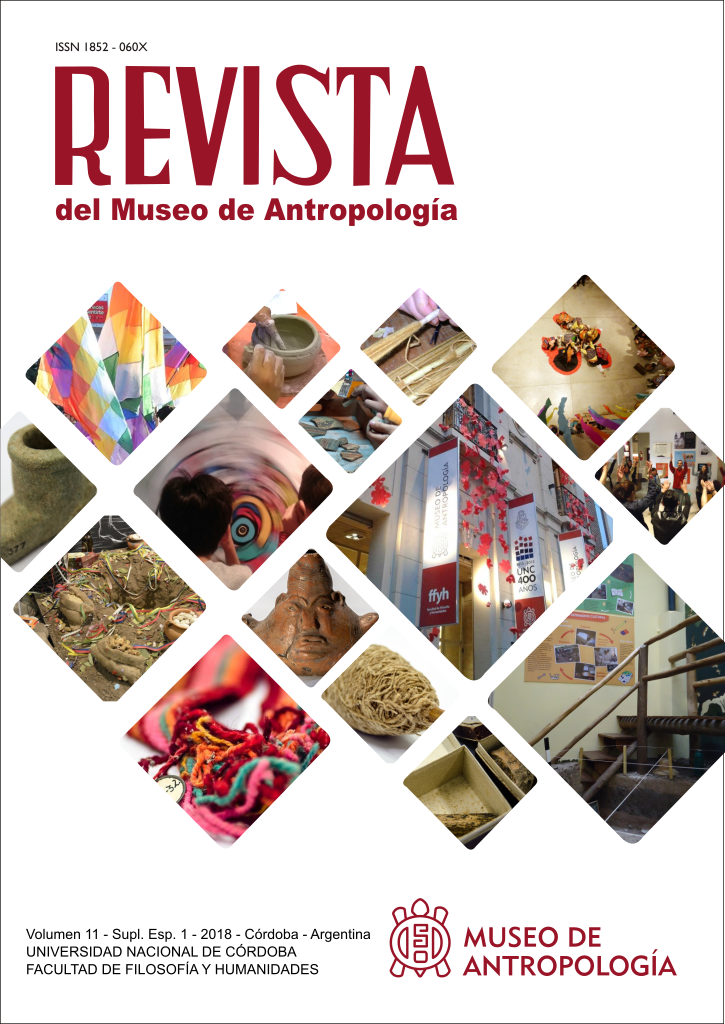¿De dónde viene el lenguaje?
DOI:
https://doi.org/10.31048/1852.4826.v11.n0.21456Palabras clave:
lenguaje, antropología, oralidad, escritura, sueñoResumen
Siempre es interesante preguntar sobre el origen de las cosas, pero para esto también debemos considerar qué es para lo que buscamos el principio. Entonces, ¿qué es ‘lenguaje’ - voz, palabras, texto? Esto lleva a una serie de preguntas: ¿cuáles son las teorías actuales y anteriores sobre cómo comenzó el lenguaje? ¿el lenguaje vino una sola vez a la humanidad y de una sola fuente? ¿puede el lenguaje y el texto verbal aparecer en sueños y visiones (el documento discute y analiza un ejemplo atestiguado etnográficamente de esto)? ¿Qué hay de la fuente de los múltiples idiomas que conocemos hoy? ¿cómo y en qué forma (s) creamos el lenguaje de nuevo? Gran parte de la teorización anterior se centró en el habla, es decir, en el lenguaje oral (en la práctica multisensorial). Pero también están las formas escritas del lenguaje. La aparición y el número de scripts es notable, como lo son, cuando los conocemos, sus creadores. ¿Cómo comenzaron estas muchas formas de lenguaje escrito? El lenguaje es un arte humano-divino clave, entre nuestros mejores, para ser celebrado. Sin embargo, en cierto sentido, sabemos muy poco al respecto y estamos en lo cierto al continuar nuestra búsqueda de su origen.Descargas
Referencias
Ariel, M. (2010) Defining Pragmatics, Cambridge University Press.
Carter, R. (2004) Language and Creativity, London: Routledge.
Darwin, C. (1871) The Descent of Man and Selection in Relation to Sex, 2 vols. London: Murray.
Chomsky, N. (2007) The Architecture of Language, Oxford University Press. by Noam Chomsky
De Chardin, T. (1999) Writings (Modern Spiritual Masters Series), Orbis.
Dossey, L. (2013) One Mind: How Our Individual Mind Is Part of a Greater Consciousness and Why It Matters, Hay House.
Duranti, A. (1997) Linguistic Anthropology, Cambridge: Cambridge University Press
Finnegan, R. (2014) Communicating; The Multiple Modes of Human Communication, London: Routledge.
Finnegan, R. (2015a) Where is Language? London; Bloomsbury.
Finnegan, R. (2015b) Black Inked Pearl. A Girl’s Quest, New York: Garn Press.
Finnegan, R. (2016) Kate’s Black Ink Poems, Old Bletchley: Callender Press.
Harris, R. (ed.) (1996) The Origin of Language. Bristol: Thoemmes Continuum).
Jousse, M. (1925) ‘Le style oral rythmique et mnémotechnique chez les verbo-moteurs’, Revue Archives d Philosophie 2, 4.
Jung, C. G. (1991) The Archetypes and the Collective Unconscious (Collected Works of C. G. Jung), London: Routledge.
Kendon, A. (2004) Gesture.Visible Action as Utterance, Cambridge: Cambridge University Press.
MacNeill, D. (2005) Gesture and Thought, Chicago: University of Chicago Press.
Müller, M. (1861) ‘The theoretical stage, and the origin of language’, Lecture 9 from Lectures on the Science of Language, reprinted in Harris 1996.
Paget, R. (1930) Human speech: some observations, experiments, and conclusions as to the nature, origin, purpose and possible improvement of human speech. London: Routledge & Kegan Paul.
Pinker, S. (2009). Language Learnability and Language Development, Cambridge MA: Harvard University Press.
Sapir, E. (1921) Language, New York: Harcourt Brace.
Sheldrake, R. (2000) Dogs That Know When Their Owners Are Coming Home: And Other Unexplained Powers of Animals, Arrow. Swann, J. et al. (eds) (2011) Creativity in Language and Literature: The State of the Art, Palgrave-Macmillan.
Verschueren, J. et al. (eds) (1995) Handbook of Pragmatics. Amsterdam: Benjamins.
Wyndham, J. (1964) The Midwich Cuckoos, Harmondsworth: Penguin.
Descargas
Publicado
Número
Sección
Licencia
Aquellos autores/as que tengan publicaciones con esta revista, aceptan los términos siguientes:
- Los autores/as conservarán sus derechos de autor y garantizarán a la revista el derecho de primera publicación de su obra, el cual estará simultáneamente sujeto a la Licencia de reconocimiento de Creative Commons que permite a terceros compartir la obra siempre que se indique su autor y su primera publicación en esta revista.
- Los autores/as podrán adoptar otros acuerdos de licencia no exclusiva de distribución de la versión de la obra publicada (p. ej.: depositarla en un archivo telemático institucional o publicarla en un volumen monográfico) siempre que se indique la publicación inicial en esta revista.
- Se permite y recomienda a los autores/as difundir su obra a través de Internet (p. ej.: en archivos telemáticos institucionales o en su página web) antes y durante el proceso de envío, lo cual puede producir intercambios interesantes y aumentar las citas de la obra publicada. (Véase El efecto del acceso abierto).














